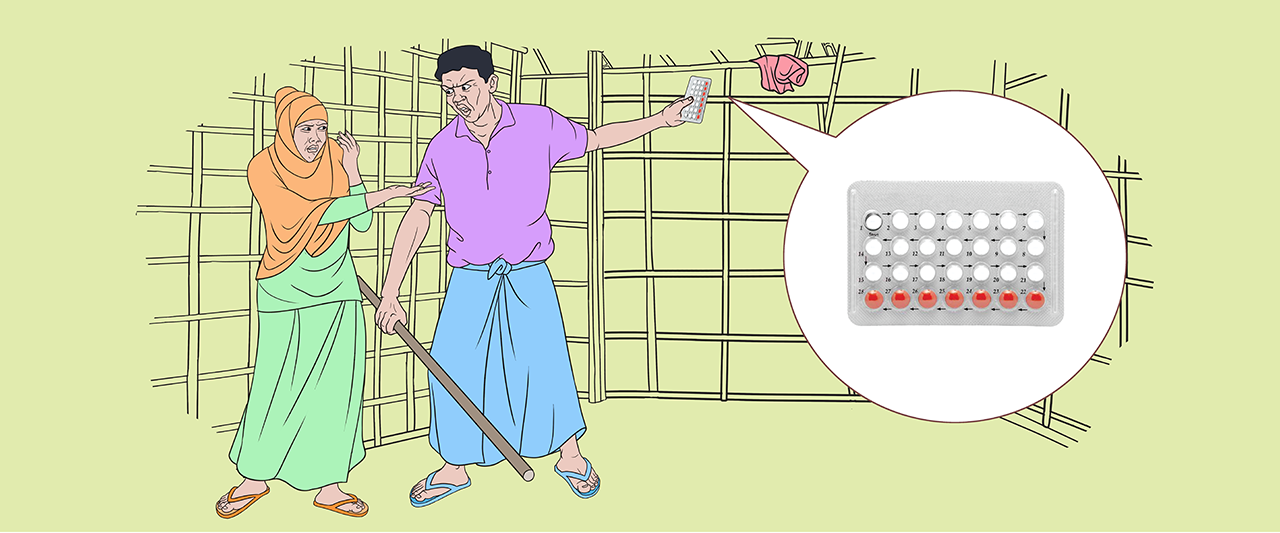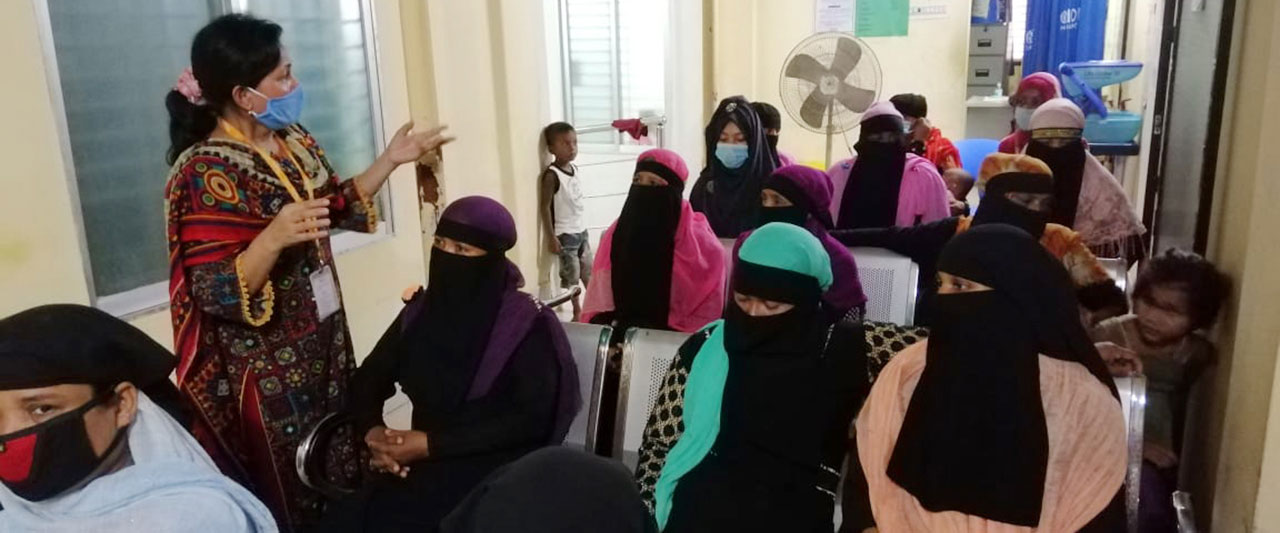Research has long shown that women and girls who experience gender-based violence at the hands of their husbands or sexual partners often experience poor reproductive health and unintended pregnancy. This issue is heightened in humanitarian settings, where women and girls are at increased risk of sexual and gender-based violence.
With the goal of identifying effective ways to provide support and strategies for women and girls experiencing these issues, Ipas Bangladesh led an innovative study in the sprawling Rohingya refugee camps located in Cox’s Bazar, Bangladesh in collaboration with the Center on Gender Equity and Health at the University of California, San Diego (UCSD).
Conducted with technical assistance from Government of Bangladesh officials, INGO partners and a community advisory group of 15 women and girls who live in the Rohingya camps, the study sought to determine whether an established, evidenced-based intervention to address reproductive coercion in health-care settings (known as ARCHES) could be adapted and used effectively in humanitarian settings—and the findings are encouraging.
During the 22-month study, which concluded in December 2022, the study team conducted formative research and a user-centered design process to adapt the ARCHES intervention and evaluate it in a humanitarian context. The evaluation involved nearly 600 women and girls who were seeking contraceptive services, menstrual regulation (as abortion is known in Bangladesh) or postabortion care. Seventy percent had previously experienced intimate partner violence, while 22 percent had experienced reproductive coercion (meaning a husband/partner or in-law had attempted to control the outcome of their pregnancy or to interfere with their contraceptive use).
The ARCHES intervention includes training of health providers to educate clients about reproductive coercion and intimate partner violence during standard clinic-based family planning and abortion counseling sessions and create an opportunity for women to disclose these experiences. Health providers were also trained on strategies women can use to cope with reproductive coercion and on how to provide referrals for violence support services.
Study participants reported that after just one session with a health provider using ARCHES counseling and materials, they felt significantly more confident (a 62-percent increase) in their ability to use contraception when facing family opposition and more confident in their ability (a 13-percent increase) to use support services for intimate partner violence. As one woman said, “If I get abused…now I know where to seek support.”
“This is a significant improvement in their confidence in using contraception and violence services,” says Erin Pearson, a former Ipas researcher who is now a research scientist with UCSD and was a co-principal investigator for the study. “It suggests that this brief, integrated intervention addressing reproductive coercion and intimate partner violence can give women the tools they need to support their reproductive autonomy.”

The project was designed with crucial input from Rohingya women and girls who live in the camps. One of their suggestions, for example, was to convey information through pictures as much as possible, in light of the literacy levels of those living in the camps. They also suggested that the information be incorporated into existing counseling materials that the women and girls already were familiar with.
Principal investigator Dipika Paul, a senior researcher with Ipas Bangladesh, says the success of this project shows the need to establish ARCHES programs at more health facilities—both within the Rohingya camps and beyond that, in communities and urban areas outside the camps.
“It’s important to reach more women and girls with these strategies and support,” she says. “This is about their ability to control their own reproductive health decisions. It can provide them with a way to get past intimidation and stigmatization and get the services they need. With additional resources, we could expand this work significantly.”
The International Organization for Migration, the International Rescue Committee and the Multisectoral Programme on Violence Against Women worked with Ipas Bangladesh as technical advisors for the study. Funding for the project was provided by the Humanitarian Innovation Fund of elrha, a global charity working to solve complex problems in humanitarian settings.



